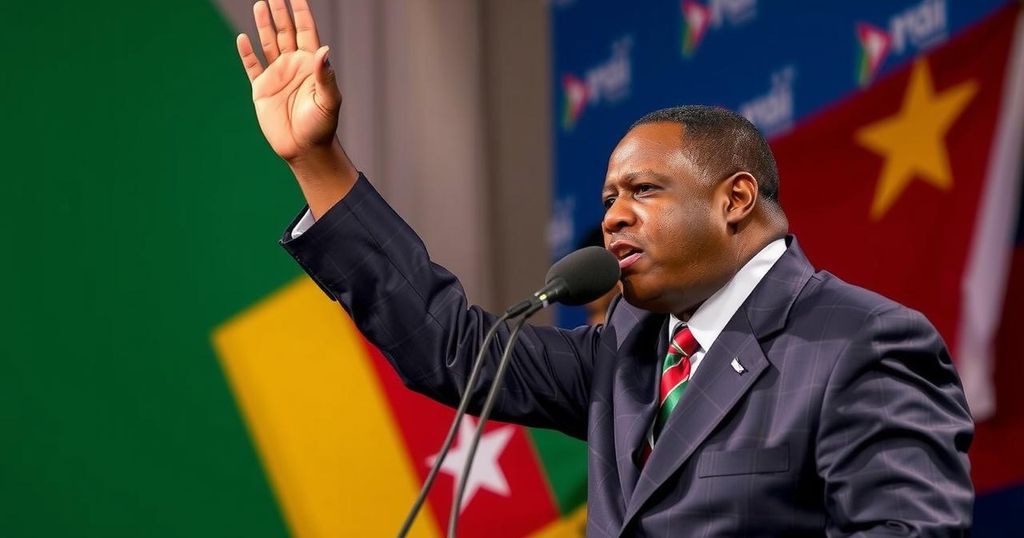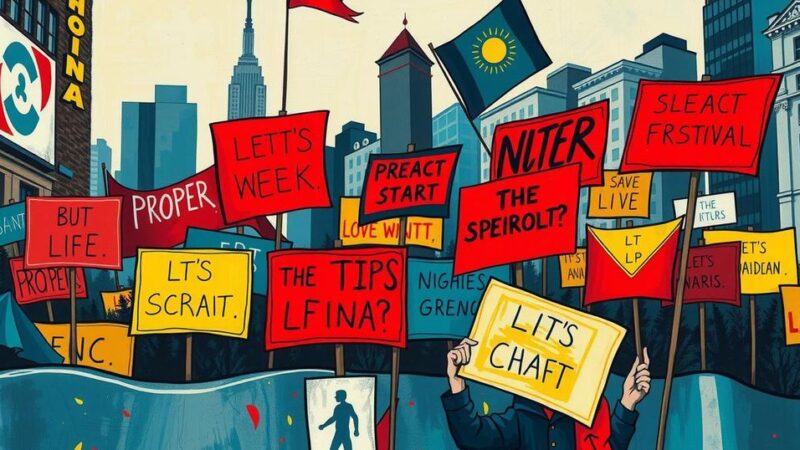Daniel Chapo of the ruling Frelimo party has won Mozambique’s presidential election with 70.7% of the vote amid serious allegations of electoral fraud and the killings of two opposition figures. Venancio Mondlane, a popular candidate among youth, received 20.3%. The election has faced significant criticism, with claims of fictitious voter registrations and irregularities during the vote count, as Mozambique continues to deal with the aftermath of corruption scandals.
The recent presidential election in Mozambique has resulted in a decisive victory for Daniel Chapo, the candidate from the ruling Frelimo party, who secured 70.7% of the votes. This outcome ensures he will not face a runoff, as he exceeded the necessary 50% threshold. In stark contrast, Venâncio Mondlane, who had garnered significant support among younger voters, finished second with 20.3% of the vote amidst troubling circumstances surrounding the electoral process. The election has been heavily criticized due to the assassination of two opposition figures, including Elvino Dias, a lawyer preparing a legal challenge to the results, and Paulo Guambe, affiliated with the Podemos party, which backed Mondlane. Furthermore, before the election held on October 9, civil society organizations raised allegations that the ruling party had registered approximately 900,000 fictitious voters within an electorate of 17 million. Observers from both local and international agencies decried the apparent manipulation of the vote counting process, with notable accusations of ballot stuffing and disparities during the tallying. Mozambique, one of the world’s poorest nations, continues to grapple with the repercussions of a $2 billion corruption scandal uncovered in 2016, which prompted foreign financial backers to withdraw their support, plunging the economy into crisis.
The political landscape in Mozambique has been characterized by the dominance of the Frelimo party since the nation’s civil war concluded in 1992. The party has faced increasing scrutiny over its governance, particularly regarding allegations of systemic corruption and electoral manipulation. The recent elections occurred under the shadow of violence against opposition members and broader concerns regarding fairness and transparency in the electoral process. Additionally, the socio-economic challenges facing Mozambique, with widespread poverty and unemployment, have inflamed public discontent, significantly impacting the political dynamics in the country, particularly among the youth population.
In summary, the recent elections in Mozambique have been overshadowed by violence, allegations of electoral fraud, and the tragic deaths of key opposition figures. Daniel Chapo’s victory represents a continuation of Frelimo’s long-standing rule, amid claims of irregularities and a fractured opposition struggling to galvanize public trust. The situation calls for urgent attention to ensure electoral integrity and safeguard the rights of citizens in their pursuit of democratic freedoms.
Original Source: www.theguardian.com






